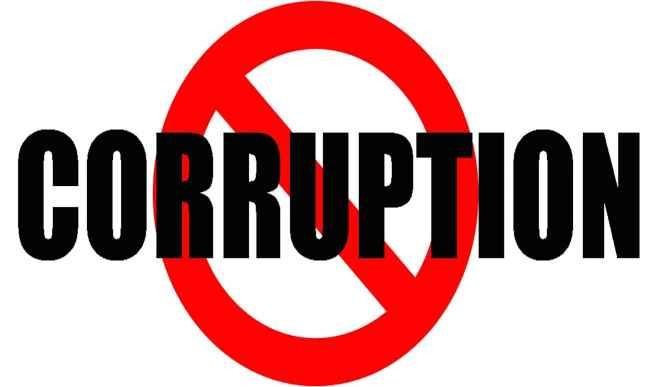‘Your Country Is Corrupt’
“Travel on the land” so says the Almighty in Quran 29: 20. Thus it was around 6pm that I arrived at Aflao, the border. Aflao is that constantly bustling space where one country ‘ends’ (Togo) and another one ‘begins’ (Ghana), at least diplomatically. Yours truly had made the determination not to challenge the force of […]

“Travel on the land” so says the Almighty in Quran 29: 20. Thus it was around 6pm that I arrived at Aflao, the border. Aflao is that constantly bustling space where one country ‘ends’ (Togo) and another one ‘begins’ (Ghana), at least diplomatically. Yours truly had made the determination not to challenge the force of gravity by traveling by air on that journey to the University of Ghana, Accra, on that particular day. I wanted to establish new connections and renew old acquaintances. Besides, travelling by air, though unarguably the safest and the riskiest, sometimes figures the humanum in solitude. Your heart is constantly turn in-between the certainty of safety that the airplane offers and the uncertain destiny that lies ahead, in the next moment, should the airplane suddenly loses altitude for whatever reasons.
About an hour to Accra, we were stopped by officers of Ghana Immigration Service (GIS). Everybody was asked to identify himself. As soon as I introduced myself and presented my travelling papers, I was accorded the dignity I thought I deserved. But not so for two other passengers. Nigerians with and without any means of identification. There and then trouble started. The two young boy and girl were asked to proceed to the GIS office. Seen my countenance and displeasure, one of the GIS officers came to me in the car and offered words of apology for the delay in our journey. He equally called my attention to a luxury bus of a popular Nigerian transportation company that plies the Accra-Lagos route. In the bus that day were young Nigerian boys, aged between 20 and 25; young men without any means of identity; men with no definite mission in Ghana.
Shortly thereafter, another officer came to show images of Nigerians of that ethnic extraction to me who were engaged in public disturbance in parts of Ghana. These are Nigerians who engage in all sorts of criminal activities in that country and to cap it all, comport themselves without care for rule of law; Nigerians who behave as if their motherland extends to Kumasi and Tudu in Ghana. Give them an opportunity of an office complex, they begin to explore how to take over the whole complex from the original owners; rent a shop out to them, they turn the shop to an apartment where they lay their heads and answer the call of nature.
But the above is not actually my destination. As soon as we started our journey afresh, our driver suddenly exclaimed thus: “Nigeria! Your Country is corrupt”. I looked him straight in the eyes. I thought he probably did not mean what he said. Meanwhile he kept a straight face. He fixed his gaze pointedly on the deserted highway even as he pressed the accelerator of the car the more. I wanted to react immediately; I wanted to stand up and defend my country. But then, I began to ask myself: Is it true that Nigeria is corrupt? Is it not true that it is not Nigeria that is corrupt but Nigerians? But what are Nigerians without Nigeria; what is Nigeria without Nigerians? Is the reason we are in the abyss of underdevelopment not traceable to the humongous incidences of corruption?” Buffeted by these existential realities, I decided to hold my breath. I counted on providence to afford me the opportunity to give the driver a response from which he would learn some eternal lesson.
Lo and behold! Fate soon provided a premise for me upon which I could engage the driver. About thirty kilometers before Accra, a big truck sped pass us and in the process it threw away part of the debris it carried on to the road. We could not catch up with the truck until it reached one police check-point. From behind the vehicle, we all saw how the right hand of the man ‘shook’ the left hand of the police officer on duty. Immediately thereafter the driver of the truck pressed the accelerator and sped off. By the time we got to the same spot, our driver had become angry. He then questioned the police officer why he did not arrest the driver of the truck for his negligence and for failing to cover the debris it carried and thereby expose other road users to risk. The police man just smiled wryly. He told our driver in that typical Ghanaian accent- ‘you too can make effort to arrest him’!
I quickly seized the opportunity of the moment. I asked the driver: “how would you describe the incident we just witnessed? The two hands that we saw and the ‘item’ that changed hands? The driver knew exactly what I meant. But I was not done yet. I asked him again: “would you then agree with me that it would be an indulgence in stupidity for anyone to say that “Ghana is corrupt’ simply because he witnessed the act of bribery that we just witnessed? Would you not agree with me that the correct thing to say is that there are some Nigerians who are corrupt the same way that there are some Ghanaians who engage in graft?”. With your PVC, you could assist Nigeria change these negative narratives. Cast your ballot in support of integrity and honesty; not to enthrone the hegemony of sleaze and scum.
